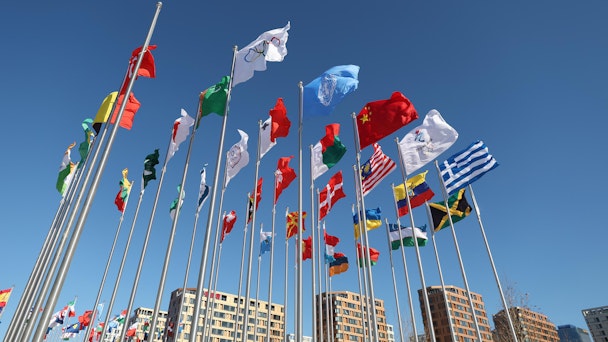Are brands avoiding Winter Olympics marketing?
The Winter Olympics is less than two weeks away, but you’d be forgiven for not noticing. So, where are all the ads?

The marketing activations for the Beijing 2022 Winter Olympics have been muted so far
The controversy surrounding China’s human rights record has dampened Winter Olympics marketing plans for broadcasters and brands.
With under two weeks until the opening ceremony in Beijing on February 4, broadcasters and sponsors are just starting to unveil marketing plans for the event. The BBC was the first to air its trailer, on February 21, but with no mention of the host country, while Discovery detailed its plans yesterday.
“The biggest global factor affecting the marketing of the games is the controversy around China,” says sports marketer Tim Crow. According to Crow the political “hotbed” surrounding the event has “persuaded stakeholders to hold back until very near to the start of the games.”
With the UK, Australian, US and Canadian governments boycotting the games, Crow says this will be on “sponsor’s minds when they decide how big to go with their activations.”
M&C Saatchi Sport & Entertainment’s business director Mel Baroni says the closing of the four-year Olympic cycle has interrupted marketing plans. “But it will be the political controversies surrounding the Beijing Olympics that are the main reason we’re seeing far less from brands. Global IOC partners, whose long-standing sponsorships are a key pillar of their brand marketing, have the difficulty of navigating sentiment across multiple markets and will tread carefully before putting anything out there.”
Jon Tibbs, founder of sports communications agency JTA, says the games have been “dampened” by Covid and a “very strong anti-China dimension in the media.” He says it’s been “tough for sponsors to counter that negativity with an activation campaign on an event that’s already been hammered by Covid.”
The event has been shrouded in “constraint,” which has impacted the way “stakeholders promote and build up excitement around the event.” According to Tibbs, every Olympics comes with some political controversy over the host city. “Brands and sponsors always breathe a sigh of relief when the opening ceremony happens because that’s when all the negativity around the host city subsides and most media then focus on the sport.”
For other sports marketers, Discovery’s internal business strategy has been cited for its muted promotion of the event.
Discovery bought the European rights to the Olympics in 2015 for $1.2bn. Under its deal with the IOC it distributes limited coverage to local broadcasters. Chris Allen, managing director of sports marketing agency Pitch Marketing Group, says: “Discovery has picked up the benefits of sharing the rights with local broadcasters. They can sit back and let the likes of the BBC market the games in that territory.”
Dan Tunna, a former Discovery marketer who worked on the PyeongChang 2018 Winter Olympics, says the business is in a period of internal changes, from bringing Discovery+ to market to the WarnerMedia takeover, which is pushing the Games down its priority list.
Tunna also notes that since Discovery has pan-European rights “it’s not possible to have large-scale activations across multiple territories ... in markets like the UK they won’t want to commit large amounts of spend as they won’t see the payback.”
“Ultimately [it uses] the Games as a driver for subscriptions,” adds Allen. “They have other strategic priorities in Europe with a lot of markets to cover. They can’t spend all their money doing big marketing campaigns for long periods of time.”

